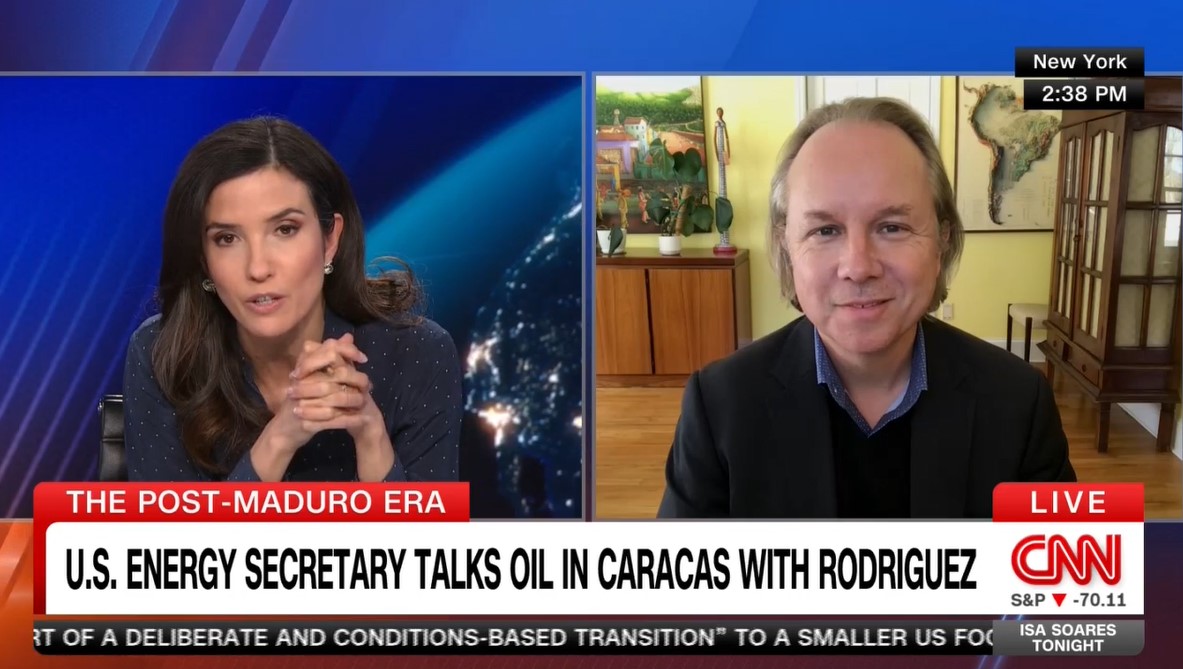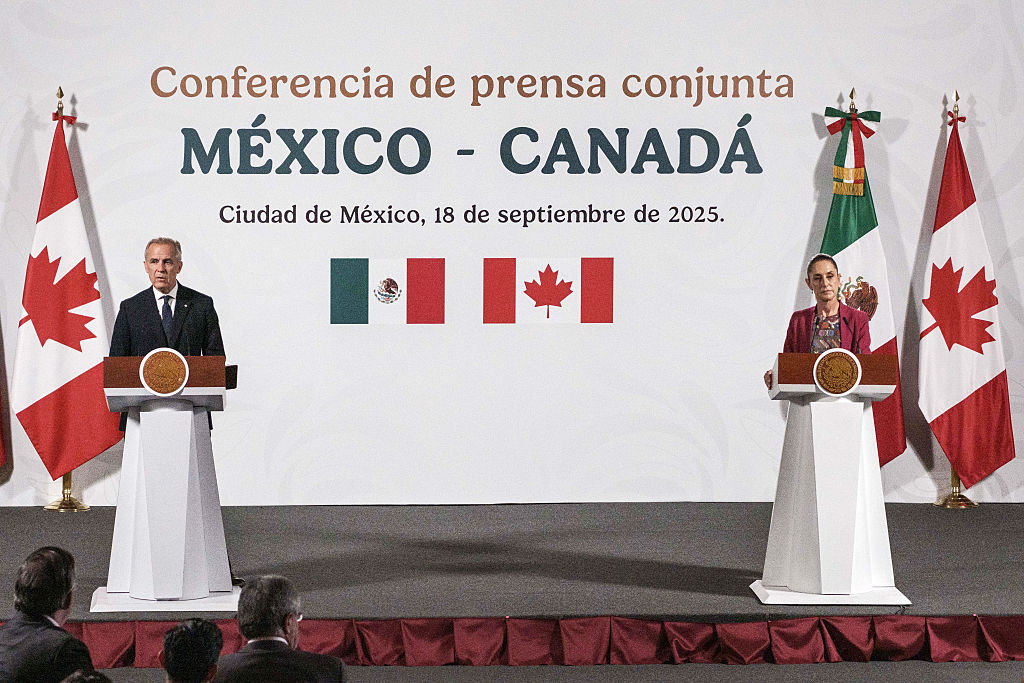Interview: Colorado Speaker of the House Terrance Carroll on Immigrant Rights
Interview: Colorado Speaker of the House Terrance Carroll on Immigrant Rights
AS/COA speaks with Colorado Speaker of the House Terrance Carroll about why his state has been “ground zero” for anti-immigrant legislation and how this has adversely affected Colorado. Carroll, an ordained minister and practicing attorney, also focuses on the lessons to be learned at a national level from the Colorado experience.
In an exclusive interview with AS/COA Policy Associate, Evianna Cruz, and Director of Policy, Jason Marczak, Colorado Speaker of the House Terrance Carroll explains why his state has been “ground zero” for anti-immigrant legislation and how this has adversely affected the state. Carroll, an ordained minister and practicing attorney, also focuses on the lessons to be learned at a national level from the Colorado experience.
AS/COA: You have been widely known as a strong advocate for social justice issues during your career in the Colorado House. Among the many issues of social justice, what led you to become a strong advocate for immigrant rights?
Carroll: I became involved in the issue and began advocating for immigrant rights due to the language that was being directed toward the immigrant community, particularly the Latino community, here in Colorado. It reminded me of some of the language directed at African Americans during the civil rights movement and even sometimes today. As a descendant of a sharecropper and a descendant of slaves, I couldn’t sit by and allow this to happen without speaking up.
AS/COA: Do you see others in the African-American community also seeing immigrant rights in that way?
Carroll: I think one of the things that we are seeing, especially in the ministerial community of the African American community, is a reliance on the Old Testament and on the book of Exodus. This gets them to understand that supporting immigrants and advocating on their behalf is a theological issue. Of course, there are some people in the African-American community who feel threatened by immigrants. That’s a sad state of affairs, but I think there is a significant effort on the part of ministers and other political leaders in the community to recognize that we can’t engage in denigrating or marginalizing a group of people based on where they come from or what they look like.
AS/COA: As a legislator, you have had the opportunity to vote on numerous immigration-related bills, and as you know, Colorado has received national attention for the many anti-immigrant bills proposed and some that have passed. Why has the Colorado legislature become so active on immigration-related measures?
Carroll: One of the reasons that we’ve become so active is that we’ve been the central point of much of the anti-immigrant fervor in this country. As a congressman, Tom Tancredo represented the sixth congressional district of Colorado. The Minutemen have held sway here for a long time, and there was a significant group of people in the legislature who thought that undocumented workers were the source of all things evil.
In 2006, we had a special session that brought the issue of immigration front-and-center, and sadly, we passed probably one of the most onerous “anti-immigrant” laws [House Bill 1023] in the country. That made us ground zero for this.
On the other hand, we’ve always had a strong social justice movement here in Colorado in the progressive community, with the American Friends Service Committee and several other organizations that have worked exceptionally hard to stand up for immigrant rights.
AS/COA: What have been the effects of that law since its passage?
Carroll: There was a study done, and rather than saving the state any money, it’s actually been more expensive to enforce the law. The law was based on a faulty premise—the idea that immigrants come to this country to take advantage of social services. It was a fundamental misunderstanding of the reasons behind immigration. The only thing the law has succeeded in doing is to prevent U.S. citizens and legal residents from getting the services that they need.
AS/COA: How can the legislative experience in Colorado be applied to national politics at a time of increased discussion on the possibility of comprehensive immigration reform?
Carroll: One thing we should do at the national level that we’ve learned here in Colorado is that there must be an emphasis placed on integration rather than marginalization. Solely relying on tactics that marginalize immigrants creates an underground that later proves to be far more harmful. This is a lesson we see when we look at the riots in France in 2006 or the riots in Germany with the immigrant population that they marginalized and failed to integrate. That’s the first part of it.
The second thing that we need to learn at the national level is that employer sanctions have to be part of any discussion about immigration reform because it is ultimately an issue of supply and demand. To be serious about addressing the issue of illegal immigration, there have to be some significant sanctions on employers. But that’s not even the most important piece. At the national level, the most important piece is actually having an immigration policy that reflects the economic realities of this country. Right now it fails to do so. Whatever we do at the national level, we have to take into account the fact that the current number of visas that we make available for agricultural workers is far from being at the level needed. Those are the lessons that we can take from Colorado to the national level.
AS/COA: How do you think that the issue of integration can be put front-and-center at the national level?
Carroll: One of the things we can do at the national level in terms of integration is to provide more support for English as a Second Language (ESL) classes. There is a misconception that immigrants don’t want to learn the English language, and that is far from being true. Look at the Pew Center’s research, the second generation of immigrants and their children learn English at an exceptionally fast rate. We have waiting periods for people to get into ESL classes, which means we need to provide more significant funding. Getting individuals off the waiting lists and helping them learn the language goes a long way toward integration. That’s what we can do most readily and most efficiently right now.
AS/COA: As an elected official, minister and member of the private sector, you have a unique perspective on how issues are seen by multiple communities. How do you think these different communities, along with NGOs and others, can best work together to facilitate immigrant integration?
Carroll: NGOs and the private sector can work together to correct a lot of the misinformation put out by groups like FAIR [Federation for American Immigration Reform] and people like Tom Tancredo and groups like the Minutemen. One of the reasons that we find ourselves in the current situation is that we assumed that all these anti-immigrant groups were just crazy and that no one would listen to them. We never directly addressed their allegations and the myths and the rumors that they spread. The first thing we can do is directly confront those myths and those rumors.
Secondly, I think NGOs and the private sector are both interested in ensuring we have an immigration policy that makes sense and reflects the economic realities of this country. Those two groups, although you wouldn’t necessarily envision them working together, could lead the effort in coming up with a solution that maybe we can’t come up with in Congress. They may be able to approach Congress and point out what needs to be done with immigration in terms of laws and best practices that should be adopted. NGOs working with the private sector can do that kind of work.








